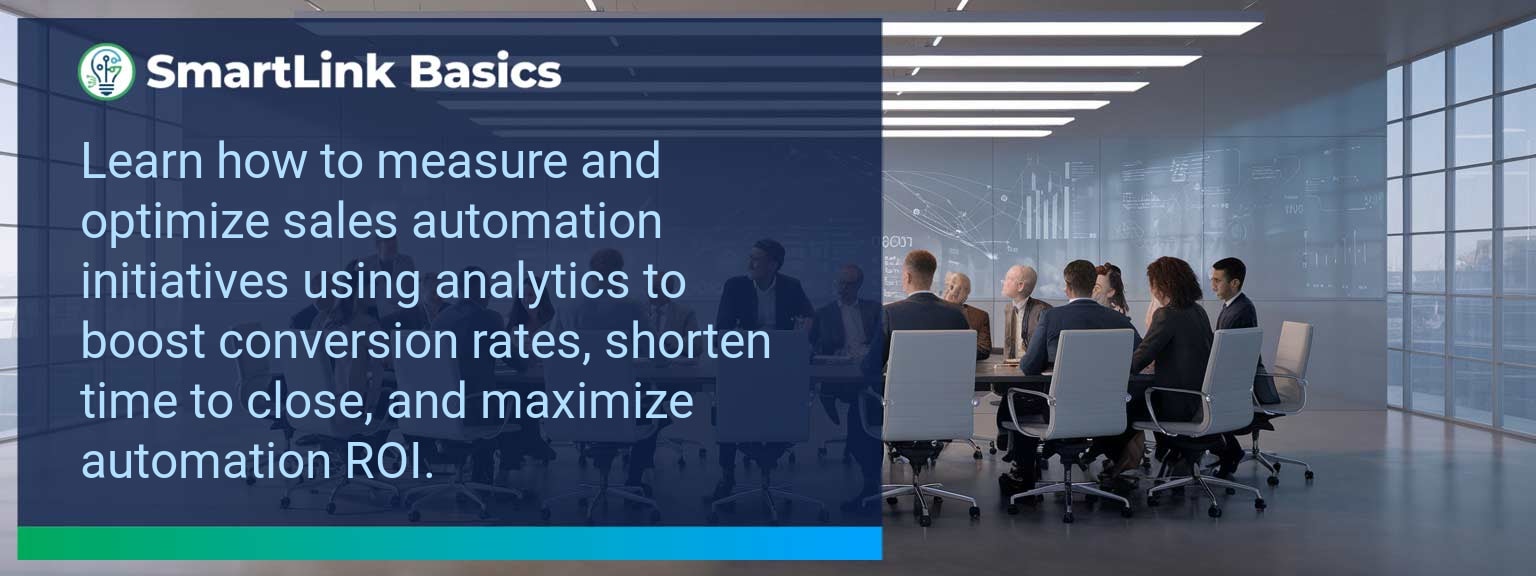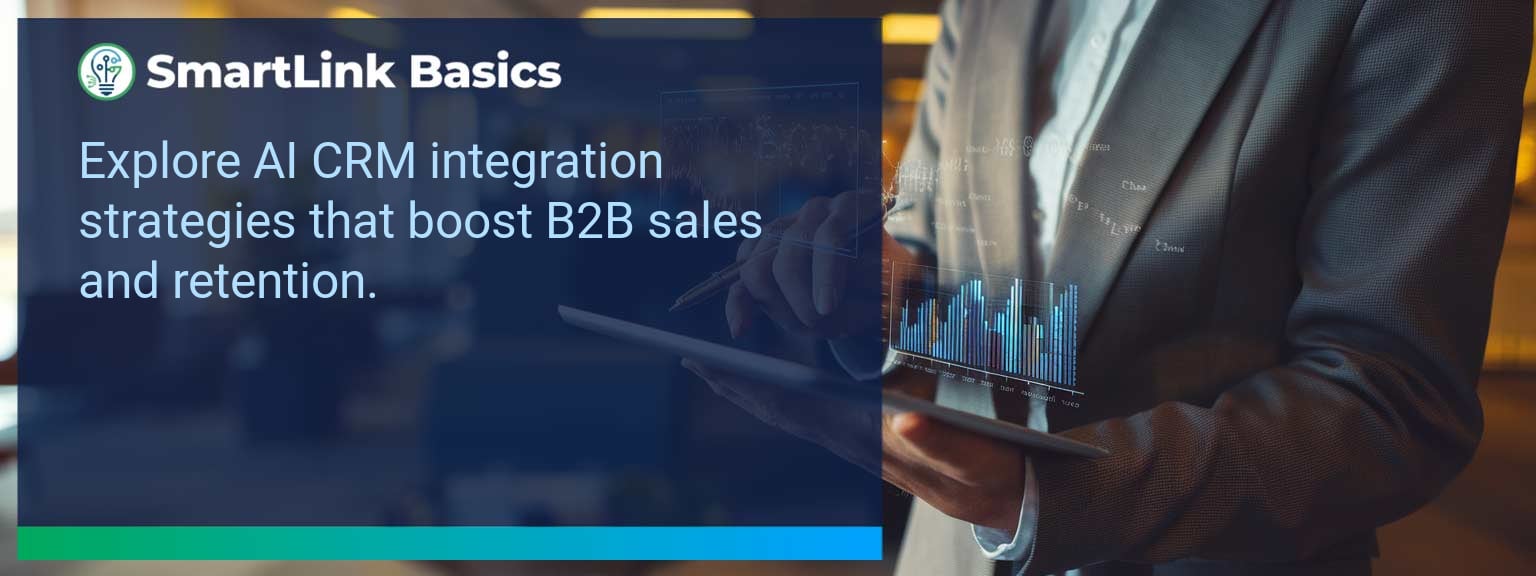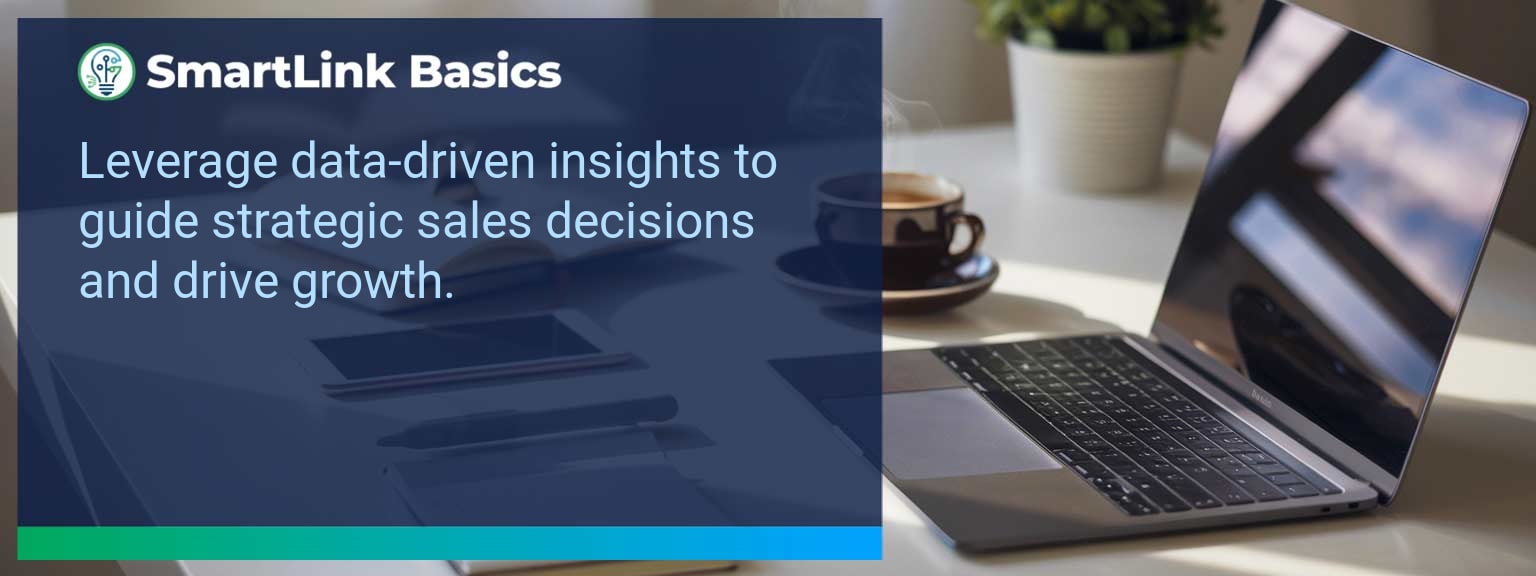Industry data shows that organizations adopting AI-driven automation achieve cost reductions of up to 30% while accelerating sales cycles by 20% or more (McKinsey, 2024). For sales leaders, AI automated workflows now define competitive advantage, enabling teams to reallocate time from repetitive tasks to high-value engagements. At SmartLink Basics, we help decision-makers implement these systems strategically, ensuring they integrate with existing revenue operations. In this article, you’ll see how AI automated workflows power business outcomes, the common obstacles that slow adoption, and practical steps to optimize processes. You’ll walk away with proven examples, a 90-day action blueprint, and measurable KPIs to track results.
- Automate repetitive administrative and CRM updates with AI.
- Integrate machine learning to personalize outreach at scale.
- Streamline approvals, quotes, and contract workflows for speed.
- Use predictive analytics to prioritize sales opportunities.
- Track adoption and performance with targeted metrics.
AI Automated Workflows: What Changed and Why It Matters
AI adoption has shifted from experimental to operational, making automated workflows a standard in high-performing sales organizations. The real advantage lies in combining workflow automation with artificial intelligence workflows to optimize every step of the revenue process. Sales leaders now use AI to synchronize touchpoints, reduce manual inputs, and ensure faster execution. For example, a B2B SaaS leader introduced automated lead enrichment and routing, cutting qualification time by 60%. Actionable insight: Audit processes for time-intensive handoffs and apply AI where repeatability is high.Redesign the Revenue Operating System With AI Automated Workflows
ICP, Segmentation, and Targeting AI-enabled segmentation uses historical wins, firmographic, and behavioral data to dynamically update ICP profiles. This ensures targeting precision without quarterly re-work. Pipeline Architecture Automated workflows push opportunities through the right stages based on engagement signals. AI flags at-risk deals for intervention. Plays and Messaging Integrated automation tools deliver personalized sequences based on buyer activity, increasing relevance at every touchpoint. Operating Cadence AI schedules follow-ups, forecast calls, and account reviews based on actual pipeline movement rather than static calendars. Actionable insight: Implement automation that adapts in real-time to both internal and buyer-driven events.Common Obstacles To Achieving Seamless Automation
The most frequent challenges are fragmented systems, inconsistent data quality, and cultural resistance. Without a unified data layer, automation amplifies errors rather than solving them. Coca-Cola Europacific Partners reported needing a full data governance upgrade before AI could improve sales workflows. Leaders must first assess infrastructure readiness and train teams to trust AI-influenced recommendations. Actionable insight: Before deployment, establish clean data practices and a single source of truth.Implementing AI To Optimize Workflows
Effective deployment of AI process optimization starts with mapping current-state processes, identifying friction points, and matching them with automation tools. For example, automating proposal generation based on CRM opportunity data can reduce turnaround from three days to one hour. Solutions combining business process automation platforms with machine learning integration enable continuous performance improvement. Actionable insight: Pilot in one high-impact stage, measure, and then expand.Tangible Benefits From Automated Processes
The benefits extend beyond time savings — sales leaders gain a scalable system. Tangible outcomes include faster quote-to-close, higher lead conversion, and better forecast accuracy. A manufacturing firm implemented AI-assisted order processing and cut errors by 40%, improving on-time delivery rates. Actionable insight: Track both speed and accuracy to measure workflow automation effectiveness.Metrics That Matter
| Category | Metric | Definition | Target |
|---|---|---|---|
| Leading | Workflow Completion Rate | % of automated sequences executed without manual intervention | 95%+ |
| Leading | AI Suggestion Adoption Rate | % of AI-generated action recommendations executed by reps | 80%+ |
| Lagging | Cycle Time Reduction | Decrease in time from lead entry to closed-won | 20%+ |
| Lagging | Revenue Per Rep | Average sales revenue generated per sales rep per quarter | +15% YoY |
| Quality | Automation Error Rate | % of workflows that trigger incorrect outcomes | <1% |
| Quality | Customer Satisfaction Post-Automation | Average CSAT score after automation implementation | ≥ 4.5/5 |
Innovations And Next Steps For AI Automation
Emerging capabilities like AI-generated playbooks, intent-driven dynamic routing, and integrated AR for virtual product demos are shaping the next wave of sales automation. Companies integrating these tools early will outpace competitors in speed and personalization. Actionable insight: Stay ahead by testing emerging automation features quarterly and aligning them with evolving buyer expectations.Get the 90-day plan, coaching rubric, and dashboard template to operationalize AI in your enablement program.
Turning AI Automation Into a Revenue Multiplier
AI automated workflows are now a strategic lever for predictable, scalable growth. This guide outlined current applications, adoption challenges, a 90-day execution plan, and measurable success criteria. To make automation pay off, sales leaders should integrate tools into one cohesive operating system and review results monthly for continuous improvement. Access more AI-driven sales enablement resources from SmartLink Basics to design a high-performance automation strategy. A sales organization without a clear vision and accountability framework often ends up chasing targets reactively, rather than building sustainable performance. SmartLink Basics works with leaders who understand that sales leadership strategies must go beyond reporting numbers — they align purpose, structure, and execution. By applying a vision-driven approach, leaders can strengthen sales team development, reinforce accountability, and achieve ambitious targets. In this article, you’ll learn how to apply practical leadership in sales, implement frameworks for tracking progress, and motivate sales team members to improve both consistency and results.- Define and communicate a clear vision that links sales goals to business outcomes.
- Identify and remove structural barriers to performance.
- Implement disciplined sales leadership tactics with measurable checkpoints.
- Drive accountability through transparent metrics and coaching.
- Build long-term adaptability into team operations.
Overcoming Barriers To Sales Success
Many sales teams suffer from unclear expectations, fragmented processes, or misaligned incentives. These issues weaken motivation and dilute accountability, even for experienced reps. The first step in applying effective sales leadership strategies is to identify systemic obstacles — such as low-quality lead flow, inconsistent messaging, or a poorly defined Ideal Customer Profile (ICP). For example, a regional SaaS provider reduced time-to-close by 25% after leadership standardized qualification criteria and implemented targeted sales plays. Leaders should address misalignments in process, definitions, and reporting that undermine team performance. Actionable insight: Conduct a quarterly “barrier audit” to systematically address the top three constraints limiting revenue growth.Implementing Actionable Leadership Tactics
Translating vision into execution requires structured, repeatable action. Leaders must define clear sales management tips that shape daily behaviors and measurable progress. Four operational anchors allow leaders to align sales team development with targeted outcomes: ICP, Segmentation, and Targeting Focus on high-probability accounts by aligning data on market segments with priority outreach. This reduces wasted effort and boosts conversion. Pipeline Architecture Establish pipeline stages with strict entry and exit criteria. This enables accurate forecasting and makes coaching interventions more precise. Plays and Messaging Provide the team with clear, tested plays that address different buyer situations. Messaging discipline prevents accounts from stalling in evaluation. Operating Cadence Integrate daily stand-ups, weekly reviews, and monthly strategy sessions. This cadence ensures micro-level accountability and macro-level alignment. Example: A manufacturing sales team doubled their quarterly close rate by instituting monthly deal strategy sessions to unblock stalled opportunities.Driving Consistent And Measurable Wins
Consistency in sales performance emerges from measurable processes, not reactive effort. Leaders need to integrate goal setting in sales with transparent metrics that teams understand and own. Balanced tracking of leading, lagging, and quality indicators ensures both immediate and long-term performance gains. Below is an example of a simple, effective dashboard:| Category | Metric | Definition | Target |
|---|---|---|---|
| Leading | Qualified Opportunities | Number of deals entering late-stage pipeline | +20% QoQ |
| Lagging | Closed Revenue | Total booked revenue per quarter | 120% of plan |
| Quality | Customer Retention Rate | Percentage of customers renewing after first term | 90%+ |
Preparing Teams For Ongoing Growth
Building a vision-driven sales culture means preparing teams to adapt to evolving markets and buyer behaviors. Leadership should conduct skill-gap analysis annually, align training programs to emerging opportunities, and foster cross-functional collaboration. Example: A B2B logistics company increased enterprise-level deal size by 15% after training reps in complex negotiation and implementing joint account planning with marketing. Actionable Insight: Build a quarterly learning agenda tied directly to forecasted opportunities in your pipeline.Get the 90-day plan, coaching rubric, and dashboard template to operationalize AI in your enablement program.
Consistent, vision-driven leadership creates a disciplined, adaptive sales organization that delivers on targets and builds a culture of accountability. The sales leadership strategies discussed here provide a proven structure for both performance improvement and sustainable growth.









